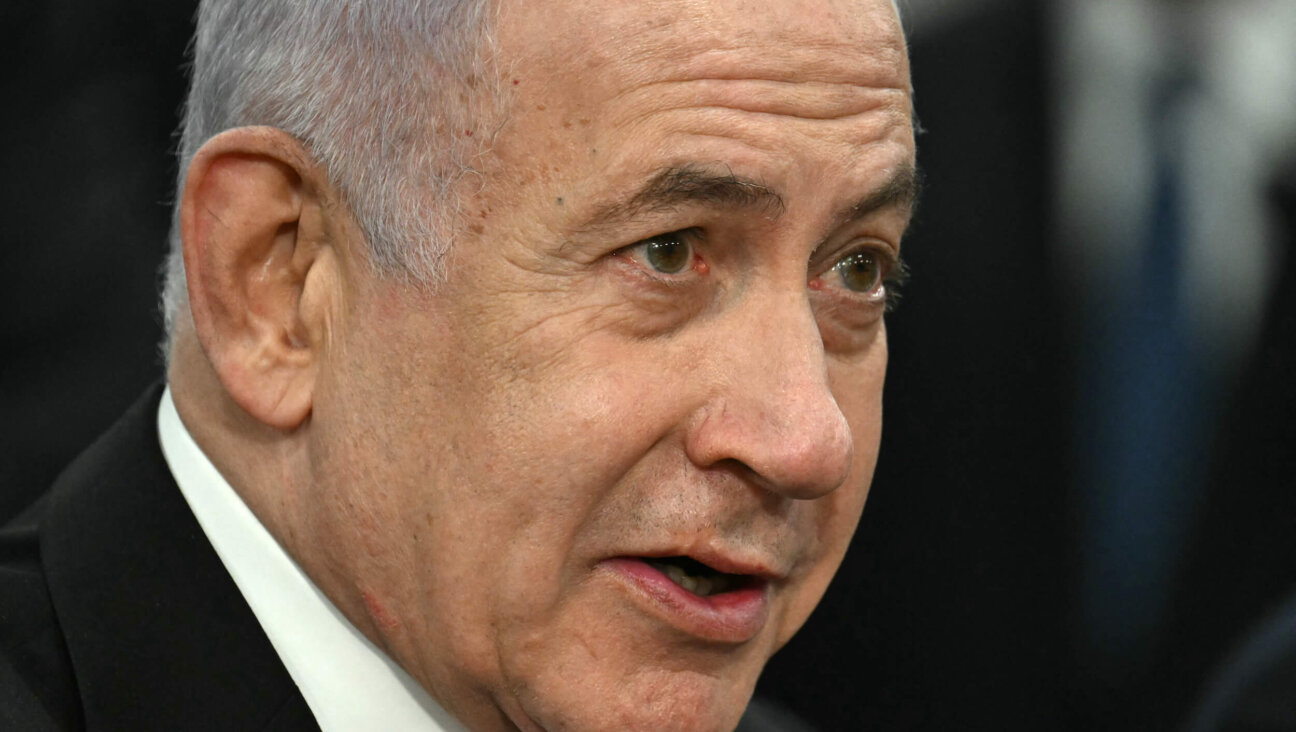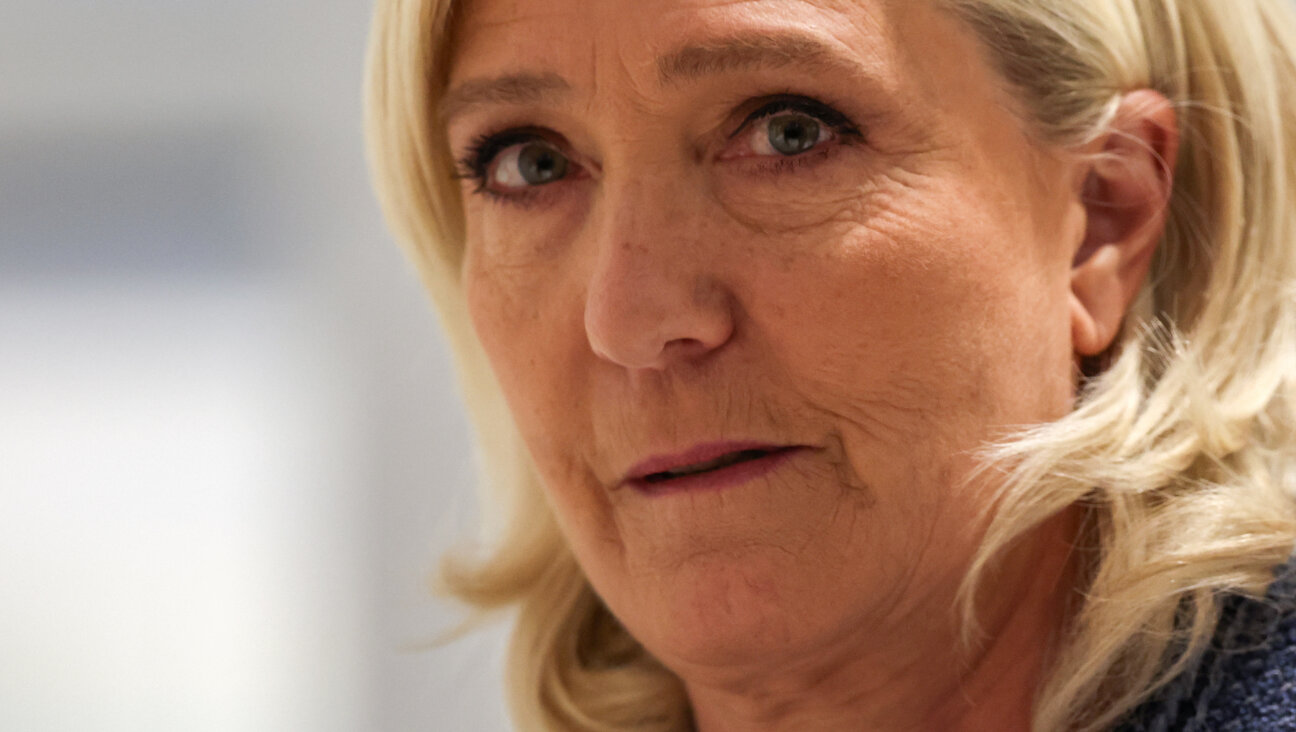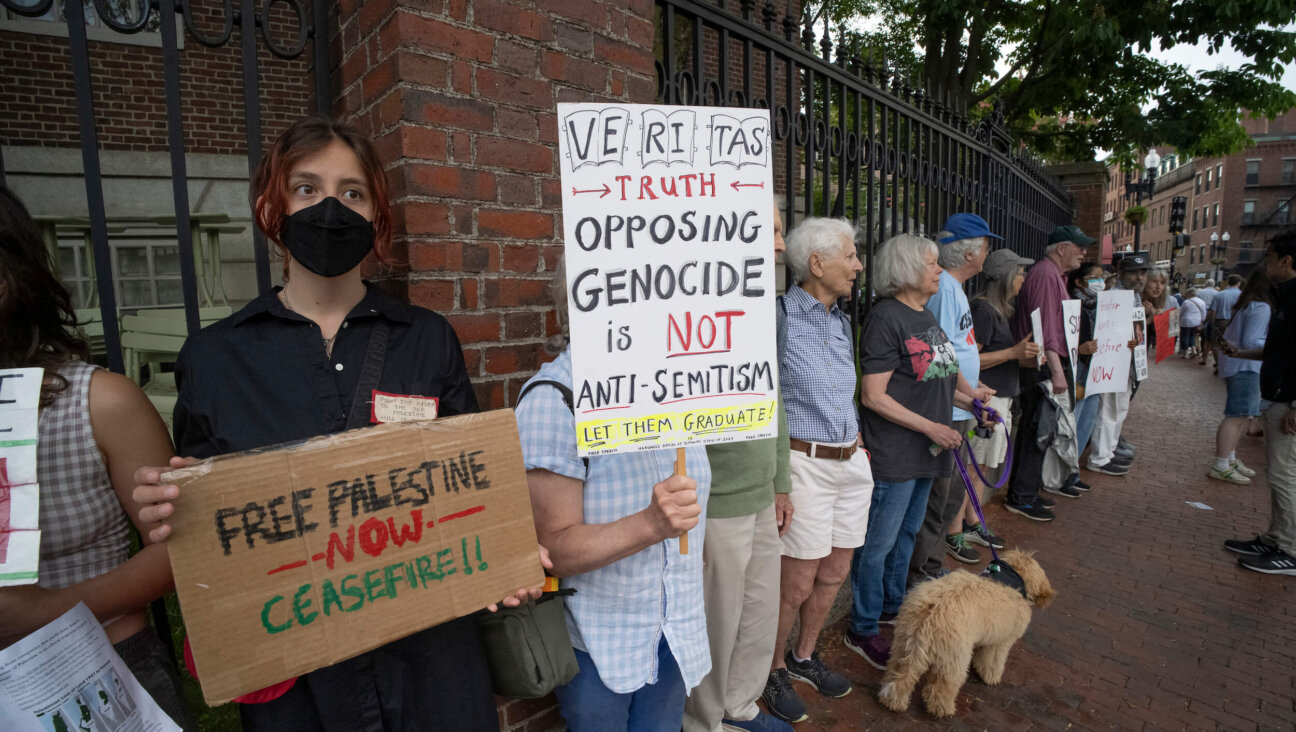I’m a Jew studying at Harvard Divinity School. Shabbos Kestenbaum doesn’t speak for me
The picture of Jewish life on Harvard’s campus that my former classmate paints is wildly distorted

Shabbos Kestenbaum speaks on stage at the 2024 Republican National Convention in Milwaukee. Photo by Chip Somodevilla/Getty Images
During the Republican National Convention Philip Roth depicts in his 2004 novel The Plot Against America, the infamous Jewish leader Rabbi Lionel Bengelsdorf speaks in favor of antisemitic Charles Lindbergh’s presidential campaign.
In his speech, the rabbi gives Lindbergh a proverbial hechsher, or rabbinic affirmation, that the narrator explains is a way for non-Jews to feel comfortable supporting an openly antisemitic candidate. In the novel, Lindbergh goes on to defeat Franklin Roosevelt in the 1940 presidential election, leading to a crisis for democracy with global consequences.
This week, in a harrowing echo of Roth’s vision, two Jewish speakers addressed the actual Republican National Convention: Matt Brooks, the CEO of the Republican Jewish Committee, and Shabbos Kestenbaum, one of my former classmates at Harvard Divinity School.
What Roth identified: When a political party that promotes bigotry hosts Jewish speakers like Kestenbaum or the fictional Bengelsdorf, they are using them as tokens, propping them up as supposed examples of diversity as they claim to fight antisemitism — even as they collaborate with antisemitic figures to help their campaigns.
In his speech at the Republican National Convention, Kestenbaum was met with raucous applause for his depiction of an Ivy League campus rife with antisemitism. There’s just one problem: That narrative does not reflect the experience of much of Harvard’s Jewish population.
As a Jew studying at HDS, I spent the last year feeling like a full, integrated member of the campus community. During the hardest moments following Oct. 7, my Jewish peers and I fought to hold one another accountable, working collaboratively to build a safe and meaningful learning environment. Jewish students have organized Shabbat dinners, interfaith services and ongoing weekly text studies, and some have participated in the student movement protesting for an end to the war in Gaza.
HDS is a small graduate program, with only a handful of students specializing in Jewish studies. The amount of attention it drew in the past academic year — in large part because of Kestenbaum’s promotion of inaccurate portrayals of it — is astonishingly out of proportion. And yet, since Oct. 7, HDS has become associated in the public mind with wider narratives of campus activism and antisemitism, in large part due to a lawsuit Kestenebaum is bringing against the university.
Yet on the HDS campus, understandings of the difference between pro-Palestinian activism and antisemitism are more nuanced.
Many students belong to a non-Zionist Jewish community at the school called Jews for Liberation, which is part of a growing movement of on-campus independent Jewish communities that reject the conflation of Jewishness with Zionism and work outside of Hillel or Chabad to provide spiritual care. Other similar Jewish organizations exist for Harvard undergraduates, as well as at Harvard Law School and the Harvard Graduate School of Design.
Instead of seeing organizations like Jews for Liberation as evidence of a strong, thriving, pluralistic Jewish community, bad-faith actors like Kestenbaum have ignored them because of how these groups challenge narratives that conflate pro-Palestinian campus activism with antisemitism, a protest movement that at Harvard includes many Jews. These attacks on campus activism go hand-in-hand with Republican-led efforts to oppose the diversification of college campuses and unravel public support for higher education.
Meanwhile, the singular focus on antisemitism totally overlooks the other, less publicized incidents of hate on Harvard’s campus, most notably the countless students who have been doxxed by right-wing media groups and publicly harassed for their activism.
What, then, was the Republican party looking to do by inviting Kestenbaum to speak and platform this narrative that fomented hate and division on campus?
Despite their professed care for Jews, the majority of the Republican party has moved to embrace white Christian nationalism, a movement working to transform the United States into a Christian state with limited rights for religious minorities. By propping up Jewish speakers to advocate their talking points, they can create an appearance of broad based support for their agenda, even though their policies would work to enshrine one supremacist interpretation of Christianity into our government.
We need to be clear: Individuals who support the antisemitic great replacement theory, Project 2025, and white Christian nationalism are not Jewish allies.
Kestenbaum’s stunt, as well as his rhetoric and policy positions, do not speak for the Harvard Divinity School’s Jewish community. Instead, they only reflect how Republicans have weaponized his individual story and experience to conceal their very real antisemitism. As we approach the November election, it’s essential to know what’s really at stake.





















